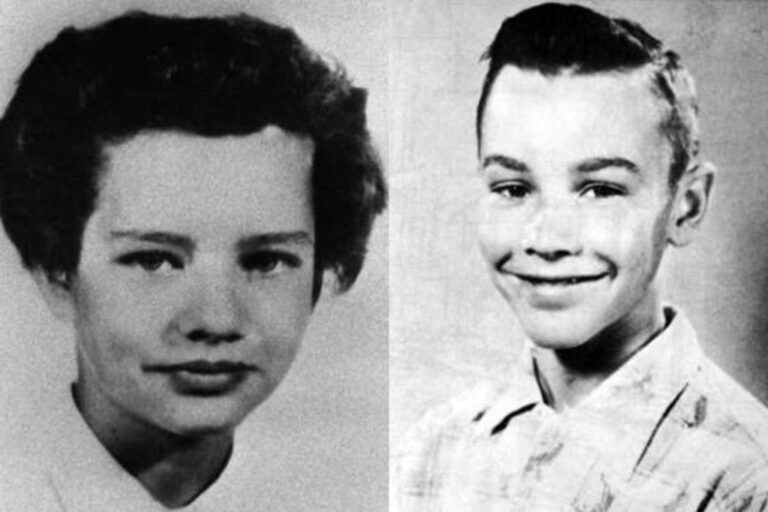It’s Time to Talk About Mental Health
Little Pretty and The Exceptional is a play set in Toronto that examines the life of a father and his two daughters. As the play unfolds, we realize that one of them is in the depths of a mental health crisis. It’s not a play about schizophrenia, because that’s ineffective to me. It’s about the human element. What is schizophrenia to a family? Who are we in a really troubling circumstance? Who do we become when we are faced with things that are bigger than we can comprehend?
In 2012, I started preliminary research on mental health. A play was coming, I could feel it. I started working on it, and around that time I myself got very sick. On my thirtieth birthday I couldn’t get out of bed. I lay there with excruciating pain going up my spine. I was rushed to the emergency and got diagnosed with arthritis in my spinal cord. I also have it in my knees and my eyes. It’s a degenerative progressive disease for which I have to do an intense amount of maintenance. I had to change my whole life around.
As I was on the medical table hearing this diagnosis, and my future was flashing in front of my eyes, I didn’t realize that my own brain was absorbing this as trauma. I didn’t realize that’s what was happening.
About six, seven months later, I found myself at Toronto Western Hospital at a psychiatrist’s office, talking about going crazy. I thought I was going crazy. Something was majorly wrong in my head, and I just wasn’t sure why. I was not who I thought I was. I was outside of my own body. I had gone mad. I didn’t know where anything was, I didn’t know who I was, nothing was making sense. I was scared of hurting myself. I didn’t know what was happening. Everything was falling apart.
I had a fish, and I would grab the fishbowl and start pacing down Palmerston. I would find myself—no slippers, in pajamas, huge loose t-shirt—walking down the streets of Palmerston and College, just repeating my own name to myself. Repeating my mother’s name, my father’s name, where I lived, what I did, who I was. That I was an actress and a writer and this is what I did for a living.
When I looked in the mirror I couldn’t recognize myself, literally. I obsessed over it for a year and a half. It was terrifying. I had to hide the mirrors, all of them.
I would find the walls inside my apartment moving, which a logical brain knows never happens. Your walls don’t move. But literally, literally, walls were moving towards me. I was standing outside of my body. I could see myself from above the ceiling. I was in a state of such pure shock.
As I’m telling you this, it makes no sense. I’m aware of that. If somebody who’s mentally healthy hears what I’m saying, it makes no sense. If you say to somebody, I am outside of my body watching myself, it makes no sense. But that’s just the reality of the brain. I could actually zoom out of my own body and watch it. It’s the most absurd experience.
I had PTSD. I remember thinking: but this is for soldiers who kill people, who go to war. Regular actresses and writers with a health diagnosis just go about their life, they don’t stand in front of a mirror questioning who they are. Other people get diagnosed with fatal things. What I have is very serious, but I’m not dying. I remember saying to myself repeatedly: Why? Why can’t my brain just move on? But my brain froze. It got stuck in a place of extreme fear and extreme trauma and extreme panic.
Another reflex that I used to have, that’s a symptom of panic and trauma, was extreme dislocation. I would not know where I was, and my brain would trigger vomit. I remember being at work and suddenly I had no idea where I was or who those people were, and my mouth was full of vomit. So: what do you do with the vomit? Do you swallow it? Or do you go out and throw it out? That was the biggest conundrum of my life that year. What would I do with the vomit?
I tried to get on a list for PTSD treatment with CAMH. It was a six-month wait. I remember thinking: what if I’m not alive in six months? I can’t wait for free PTSD treatment. And thankfully God blessed me with this job, because my treatment was $10,000 by the end of it, which I paid on my own. Ten grand is a lot of money. How do you afford that? It’s made harder by the fact that our business is not sitting around for people. You still have to go on: the show’s gotta get made, I’ve gotta get my deadlines in. Plays have to get done, audition deadlines have to be met, rent has to be paid. If I didn’t keep working, I couldn’t afford to go to therapy. I had to keep working. So do you swallow it, or do you not swallow it? It sounds so ridiculous now when I say it, but it’s true. It’s absolutely true. What do you do?
It’s very easy to tell somebody, I have arthritis in my spine. But how could I tell someone, I have PTSD right now, I can’t recognize my own face?
I did seven months of the wrong kind of treatment until I ended up with the right kind of treatment. I ended up finding a really good PTSD therapist, a cognitive behavioural therapist who focuses on trauma. CBT is the best for PTSD and trauma-related things. It just opens up your brain in a very different way. And I slowly, slowly, started to learn what PTSD actually means, and what trauma does to someone’s brain.
I remember doing a contract at Factory, and pre-show I had to put my makeup on, but I literally didn’t know who my reflection was. I was seeing my therapist at that time, and we were trying all kinds of tactics for my brain to move forward from that thought that it got stuck in. I found this tiny shard of a mirror at the dollar store, so I wouldn’t have to stare at my face and engage in the panic behaviour. And I remember the other actor at the show going, Why are you using a mirror that is smaller than your thumb? You look absurd. And I remember thinking, Do I tell or do I not tell? He’s my co-lead. Is he going to trust that the hundred pages I have memorized will all be there?
I don’t want people to think I am not capable. How do you know somebody’s not going, Shit, we shouldn’t hire her, man. She used to have PTSD. Who wants to work with an actress or a writer who is not well? It’s very easy to tell somebody, I have arthritis in my spine. It gets you a lot of compassion. But how could I tell someone at the time, I have PTSD right now, I can’t recognize my own face?
At the time I hadn’t met my partner. My greatest love, my best friend, was my mother. I thought: what if I forget her? My brain got stuck in that thought, which produced extreme traumatic fear, which led me to want to go to my parents’ house every night to make sure my mom was okay. Which makes no logical sense to me now, with a healthy brain. But I would go. Every night at midnight I would walk down the street, in pyjamas and with a fishbowl, in extreme panic and fear. And when I started to seek treatment, that was the first thing my therapist stopped. She said, no, no. No one’s going to their parents’ house. Tell your brain you’re going to forget your mom. Do it. Let’s tell the brain you’re going to forget her. See what that does. I said, you cannot be serious. My brain couldn’t comprehend it. I told her I had to go to my parents’ house. And she said: So what? You have to do everything you’re thinking?
One of the CBT exercises was walking the hallway of her office building. It’s a circular hallway, I’ll never forget it. She walked behind me; I walked in front of her. She would repeat things, and I had to learn to hear them and not do any of them. She would walk right behind me, and she would go: Jump. Swing your arms. Walk faster. Walk slower. Talk to me. Keep your mouth shut. Don’t open your eyes. Close your mouth. I remember doing that exercise, not doing anything she was saying, and then she was like: So, then, do you have to do everything you hear? No. You don’t have to do everything your mind is telling you, because your mind is stuck in panic.
I felt like I was acting that entire year and a half of my life when I was suffering. I was putting out a version of myself, and then a whole other thing was happening in my head. I think four people knew about my PTSD. Other people I ran into would never, ever, ever know. And in both theatre and TV I felt comfortable, because it’s what I knew to be home. But what’s uncomfortable is the elephant inside the home, which I never invited in. The acting community was amazing: everybody knew about my physical health, because many people saw me walking with a cane. People were very compassionate. Many people had to help me, give me rides. But I couldn’t tell anybody about my PTSD, because—what do you tell people? I’m walking the streets of Palmerston with my fishbowl? I’m repeating my name for hours on end? Or, the walls are closing in on me, or, I vomit in my mouth and I’m not sure if I should swallow or spit it out?
There were many times I thought I just wouldn’t get better. I really, honestly thought that was my life. But I did get better after that year and a half. I have moved on with my life, and I have a great partner and an upcoming marriage and all of those wonderful things. However, the weight of what I am and who I am is still informed by something I have never talked about publicly.
There were many times I thought I just wouldn’t get better.
What’s important to me, and what I want to achieve by talking about this, is for anyone who reads this and who is suffering to know that there’s treatment. Your mental health is equally as important as your physical health. People who are struggling are not alone. You are not alone. Many people have done it. I’m a creature of loneliness, and I enjoy my own company. But the loneliness of the noise in your head is a very different loneliness.
Now that I’ve recovered and three years have gone by, I find myself still hesitating. The first time I ever wrote about it is in the playwright’s note that I just submitted for Little Pretty. But I’ve never, ever discussed it, because it’s the most traumatic thing of my life, the most personal thing of my life. It’s my greatest grief. The part of me that struggles goes: You’re exposing your depths of despair. Will you still be thought of as strong? You’re exposing your grief, your dirty laundry. Will you be still thought of as a tidy person? As a person who is capable?
That time in my life informed my writing, and it’s really informed this play. It’s allowed me to really take a deeper look into the loneliness of it. Some of the things in this play are very absurd, and watching some of the run-throughs, I wonder what the audience will take away from it. Will they sit there thinking, this is not real, this is not possible, these things don’t happen? But it’s all from research, and from my own experience. I don’t believe that a writer who decides to tackle something deeply sensitive has to tell everyone: Hey, that’s me, I went through that really terrible experience or really great experience. You don’t have to tell everything about your life story. But I think for something like this that requires advocacy, it’s important to share. I think, if people can, they should come forward with their own story and seek treatment. That’s it. That’s all I actually care about. If even one person can seek treatment from anything I’m saying or writing, honest to God, that’s enough. It’s such a clichéd thing, but it’s true.
The point of all of it is for people who are reading and struggling to advocate for their own mental health, and to seek out treatment. Advocate for it, and seek it out. I was able to pay for it because of my job. Some people have to wait on waiting lists. But if you have to be on the waiting list, then you have to be on the waiting list. You can get treatment.
Since I came out to some of my close friends about my struggles, I realized how many of us artists are actually in treatment and needing help. Many, many, many. In fact, I don’t have a single close friend who hasn’t sought treatment for something or other. All of us are doing it, but we’re keeping it in the dark. It’s very easy to say I’m getting treatment for my arthritis. It’s very different to say what you’re actually getting treatment for if it’s your mental health.
It’s a fascinating balance we have as actors, as creators, to keep ourselves open, keep ourselves vulnerable. It’s really, really tricky, because we are constantly asked to expose our most vulnerable side, our most truthful side, our most painful side. And so we have to make the choice to do it every single day. What side are you showing? I have a thousand sides that I can choose to share. Which version would you like to see?
Anusree Roy would like to encourage any readers struggling with their own mental health to look into the resources offered by CBT Associates.

















Comments